De Havilland D.H. 82A Tiger Moth Version 2
Production Time 9 to 10 weeks
Shipment is by FedEx, UPS or DHL International Express Courier with a normal door-to-door delivery time worldwide of within 2-3 business days after dispatch. Due to the current volatility of world fuel prices, the amount mentioned here is our best estimate for DHL and UPS and may be subject to change at the time of shipping.

Model Description: De Havilland D.H. 82A Tiger Moth Version 2 Wood Replica Scale Custom Model Aircraft
Manufacturer: De Havilland
Wingspan: 17 Inches (43.2 Centimeters)
Height: 5.2 Inches (13.2 Centimeters)
Scale: 1:21
Registration: G-ACDC
$249.50
Production Time 9 to 10 weeks
-
United States dollar ($)
-
Pound sterling (£)
-
Euro (€)
-
Australian dollar ($)
-
Canadian dollar ($)
-
Singapore dollar ($)
-
Swiss franc (CHF)
-
Japanese yen (¥)
-
Danish krone (kr.)
-
Hong Kong dollar ($)
-
Norwegian krone (kr)
-
Swedish krona (kr)
-
United Arab Emirates dirham (د.إ)
General Product Description
Our PlaneArts De Havilland D.H. 82A Tiger Moth Version 2 model exhibits unique, unrivaled quality and detailed design to come as close as possible to the accuracy of the actual plane. It comes as standard with a robust, durable base or stand which is available in a variety of different finishes designed to match your own personal requirements including solid wood, wood with polished metal supports or adjustable wood wall mount and will be ready within about 9-10 weeks from placement of order.
The De Havilland D.H. 82A Tiger Moth Version 2 model is made of the finest kiln dried renewable mahogany wood (commonly known as Lauan or Meranti) which has undergone many stages of carving and meticulous and careful sanding giving the beautiful finished museum quality masterpiece. Many collectors and model connoisseurs demonstrate their preference for genuine handmade and hand painted mahogany wood models rather than plastic or die cast (diecast) alternatives due to the overall look and totally different feel of the item - we trust you will find the same. We can, however, if required produce the same model in Solid Cast Resin so just click and contact us us for further information. Our craftsmen and gifted artisans ensure that our finely handcrafted model airplanes match the precise blueprint details of the original aircraft. The paint scheme, markings and parts are closely matched, reflecting the original aircraft. This stylish top-quality desktop replica model will surely enthrall anyone who receives this as a gift and for sure one of the most appropriate and desirably collectable gifts for any aviation enthusiast and avid aircraft collector whilst also displaying a perfect resemblance to the actual aircraft.
If you require we can also make the De Havilland D.H. 82A Tiger Moth Version 2 model in any other airline, private livery or colour scheme you require and if necessary in a different size or scale. Just click here to contact us with a description or photographs of what you require, and we will let you have a quotation for the necessary customization by return email. We can also make bespoke scale replicas of any other private / civil commercial airliner or airliners, helicopter, glider, gliders with engines, military jet, warplane jets, propeller warplanes, biplane, triplane, tail fin, spacecraft, rocket or NASA model you require in any airline, military or civilian livery or colors. We also produce model airships, blimp, dirigible, blimps, boat and ship collectibles. Wall plaque or seal for military, government or private customers. Again, by clicking here to contact us just let us know exactly what you need.
Unfolding the Wings of History: The De Havilland D.H. 82A Tiger Moth
In the annals of aviation history, few aircraft can claim the iconic status and affection enjoyed by the De Havilland D.H. 82A Tiger Moth. This biplane, with its distinctive silhouette, not only played a pivotal role in the training of thousands of pilots during and beyond the Second World War but also became a beloved figure in the world of vintage aviation. Its design, performance, and legacy make the Tiger Moth a fascinating subject for aviation enthusiasts and historians alike.
A Design Born of Necessity
The D.H. 82A Tiger Moth emerged from the drawing boards of the De Havilland Aircraft Company in the early 1930s, evolving from the earlier D.H. 60 Moth. The intention was clear: to create an affordable, reliable, and easy-to-fly trainer that could be used by flying clubs and military forces alike. The design genius Geoffrey de Havilland himself was heavily involved in its development, ensuring that the aircraft would meet these criteria effectively.
The Tiger Moth is a biplane, a type of aircraft with two main wings stacked one above the other, which provides exceptional lift and stability. This design choice was instrumental in its role as a trainer, as it allowed for forgiving flight characteristics and easier control, which were ideal for novice pilots.
Features That Defined an Era:
- Construction: The D.H. 82A featured a primarily wood and fabric construction, typical of the era, making it lightweight yet surprisingly durable. Its wings, which could be easily folded back, facilitated transport and storage, a feature that was particularly appreciated by flying clubs with limited space.
- Engine: Powering the Tiger Moth was the reliable de Havilland Gipsy Major, an inline, four-cylinder engine. This powerplant was known for its reliability and ease of maintenance, producing around 130 horsepower, which granted the aircraft a top speed of approximately 104 miles per hour (167 km/h).
- Cockpit and Controls: The open cockpit of the Tiger Moth offered pilots and their instructors an unrivaled field of view, essential for training and pleasure flights. Its controls, though basic by today’s standards, provided an excellent training platform for airmanship fundamentals, stick-and-rudder skills, and the essence of flying by feel.
- Operational Use: Although designed as a training aircraft, the Tiger Moth’s operational roles extended far beyond. During WWII, it served in various capacities including primary training, liaison, and even coastal patrol duties. Its versatility and reliability made it a valuable asset across the British Commonwealth and beyond.
Legacy and Preservation:
Today, the De Havilland D.H. 82A Tiger Moth is a cherished relic of aviation history, with several hundred still flying. It is a staple at air shows and vintage flying events, where its elegant flight characteristics and distinctive engine sound captivate crowds and remind us of a bygone era.
Moreover, the Tiger Moth continues to serve in the training of pilots who wish to learn the traditional skills of flying, offering them a direct link to the roots of aviation. It is not just an aircraft; it is a living museum piece, offering invaluable insights into the evolution of flight training, aircraft design, and the undying human spirit of adventure.
In conclusion, the De Havilland D.H. 82A Tiger Moth stands as a testament to the ingenuity and vision of its creators. Its contribution to the training of pilots, its role during critical periods of history, and its enduring legacy in the world of aviation, make it an indelible part of our heritage. The Tiger Moth is not just an aircraft; it is a symbol of resilience, innovation, and the timeless allure of flight.
| Weight | 6 kg |
|---|---|
| Dimensions | 13.85 × 17 × 5.2 in |

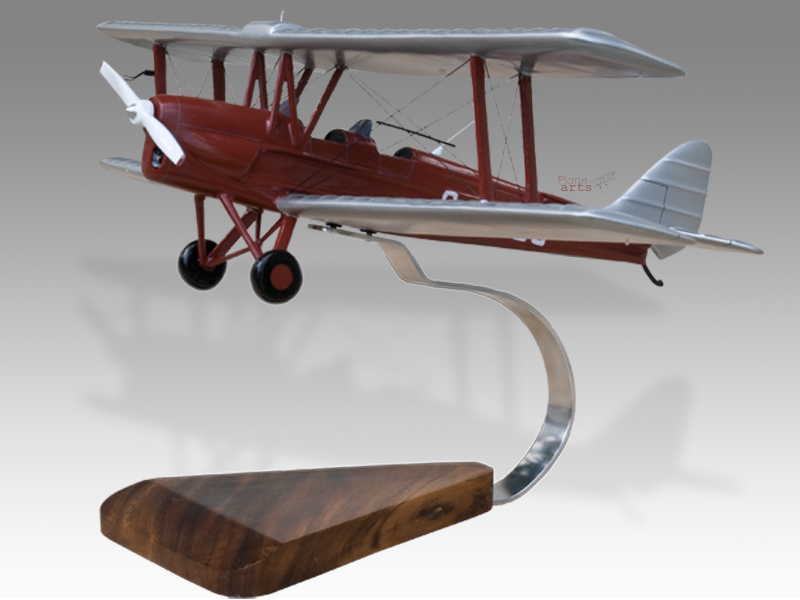
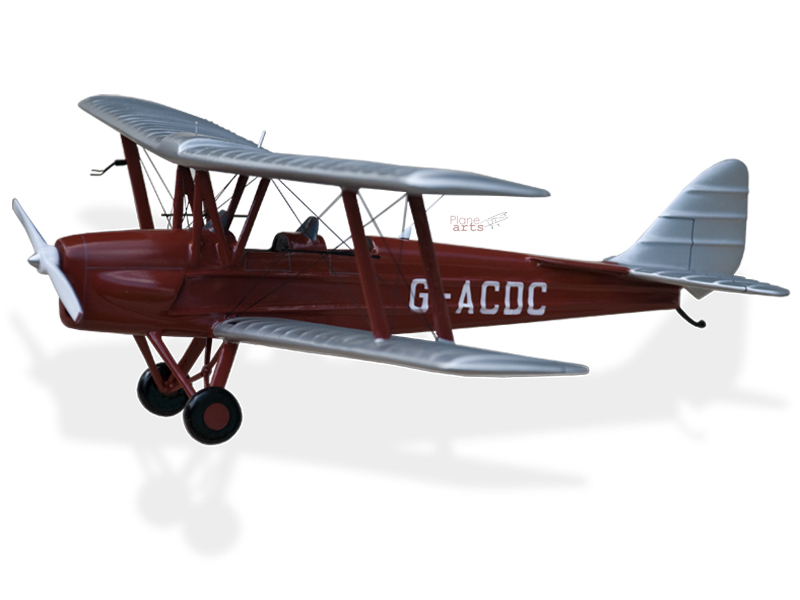
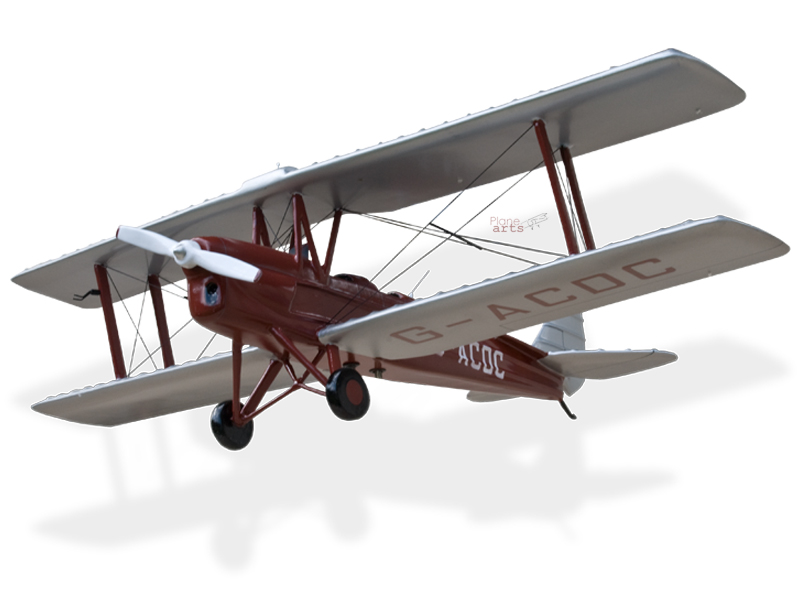
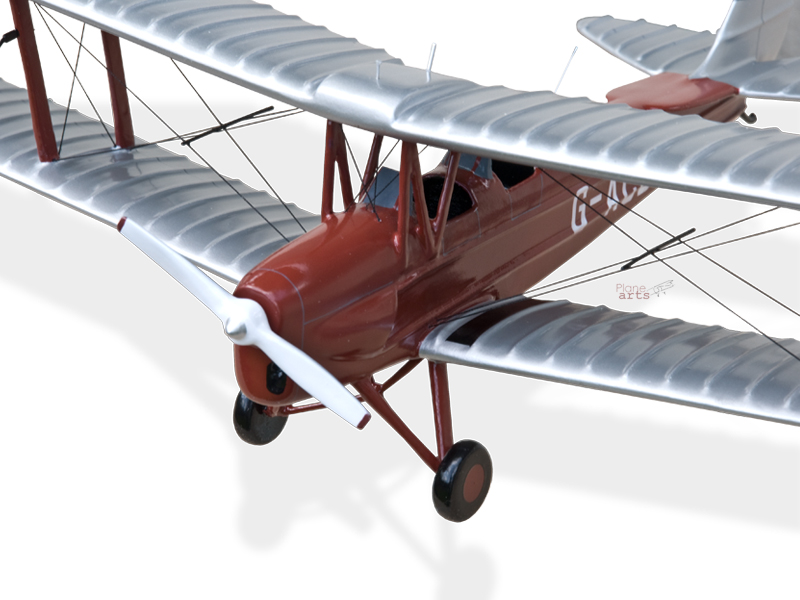
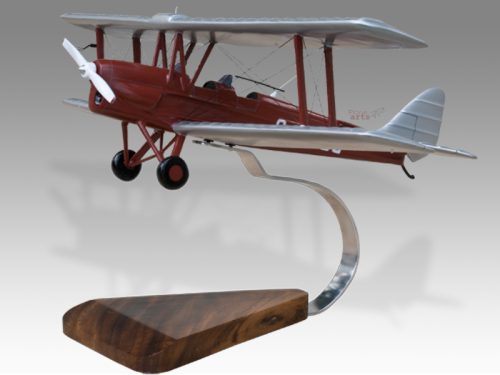
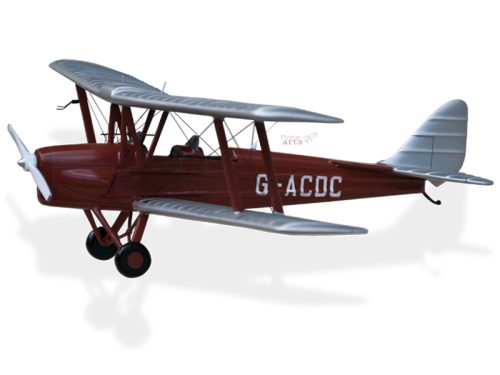
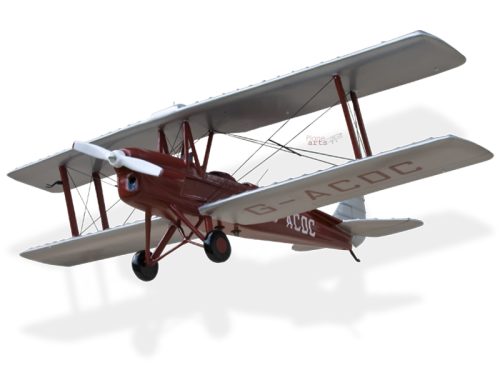
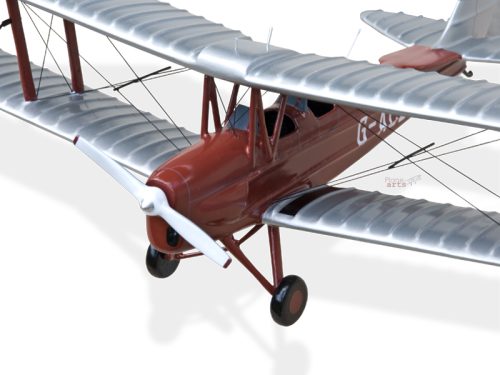
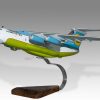

Reviews
There are no reviews yet.